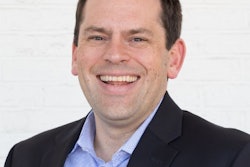
Around 2008, my father, Dr. Ben Cumbus, a pediatric dentist from Montgomery, AL, was looking to sell a portion of his practice to an associate. Leading up to that decision to sell, my father had worked diligently as a solo doctor for more than 30 years, serving our city's children and caring for their oral health. Over the years, his team and business grew, and the practice (and the caboose) became a bit of an icon in Montgomery.
But when it came time to sell the business, it was a challenge. Pediatric dentists were hard to come by. Although my father ultimately found a fantastic partner who eventually purchased the practice from him, it took years to complete the transaction.
All's well that ends well. But that was in 2008.
What about selling a practice today?
More practice buyers
 Kevin Cumbus.
Kevin Cumbus.If my father were looking to sell that same practice today, the process would be a bit different. In 2008, the buyer pool was rather limited: pediatric dentists with a license to practice in Alabama who wanted to live and work in Montgomery and who would qualify for a loan to buy the practice. Over any given year, there may be one or two buyer candidates.
Today, the buyer pool looks a bit different. I could connect him with a whole host of buyers, including the following:
- Private equity-backed dental service organizations (DSOs)
- Dentist-founded and debt-funded groups -- either specialty or multispecialty focused
- Orthodontic practices looking to capture referrals and build vertical integration
- Private equity and family funds looking for that one practice to acquire, learn from, and grow into a leading pediatric group in the region
In 2008, dentists did not have a lot of options when it came time to sell their practice. DSOs were just beginning to gain traction, and close to 99% of all practice transitions at the time involved one doctor selling to another doctor. Today, 25% to 30% of all practices are owned by a group, an invisible DSO, a DSO, a dental plan organization, or a private equity group (PEG).
If my father were selling today, he would be faced with more buyers offering higher prices than ever before. I'm not saying that my father would have sold his business to anyone other than another pediatric dentist, but he would have had options.
Higher practice valuations
Times have changed. A lot. And the value of a dental practice has never been higher. Remember Econ 101? An increase in demand but constant supply means that prices go up!
At my company, Tusk Partners, we've seen that demand for dental practices far outstrips supply, leading to quicker sales and better payouts. Sales that historically took brokers three to four years to sell are selling in six months (with a bidding war). We're able to sell practices regional brokers sell for 70% of collections for up to 300% of collections.
In today's environment, there would likely be a bidding war for my father's practice due to its history of success, size, and scale.
The point
It goes without saying that a lot has changed over the past 15 years in the business of dentistry. There are more buyers than ever who are looking to buy your practice. It's important that you stay informed about the wide array of buyers and the prices that they are willing to pay. If you've received an unsolicited offer from a DSO or PEG, don't take the offer. I promise there are more groups out there who would be interested in partnering with you.
Also, selling to a group or DSO is not for everyone. As I shared, I am not sure my father would have sold to one even if he would have had the opportunity. Frankly, I am rather agnostic on the matter of whom a dentist sells his or her practice to. But I am adamant that every dentist who owns a practice should be aware of the market today and be informed about the wide array of prices buyers are willing to pay.
Kevin Cumbus is the founder and president of Tusk Partners, an M&A advisory firm focused exclusively on large and group practices that want to partner with a DSO or private equity group.
The comments and observations expressed herein do not necessarily reflect the opinions of DrBicuspid.com, nor should they be construed as an endorsement or admonishment of any particular idea, vendor, or organization.



















